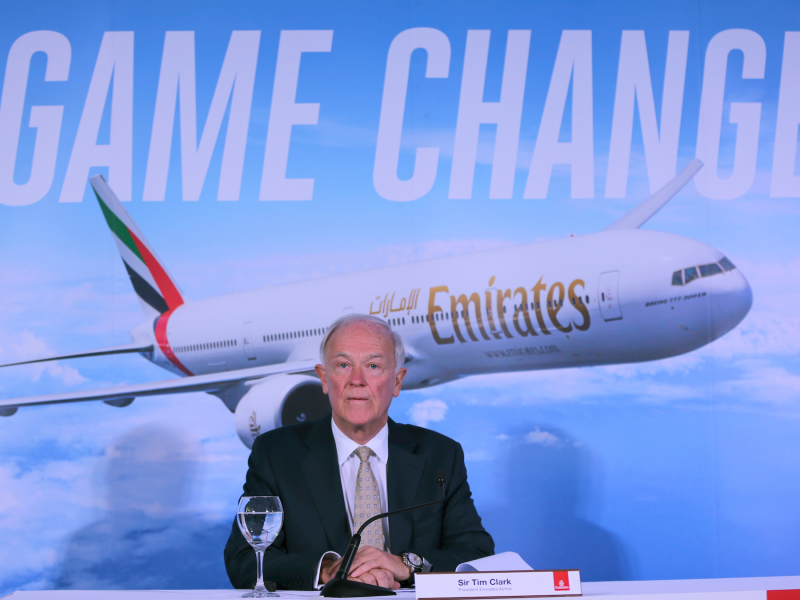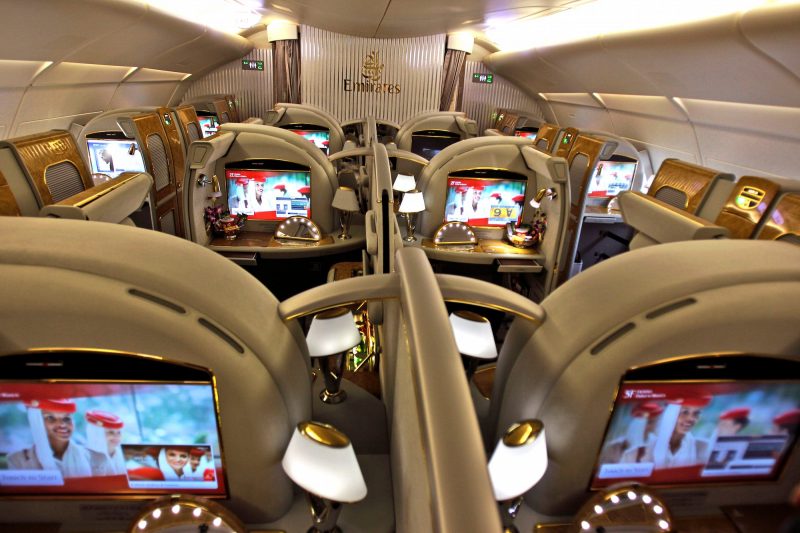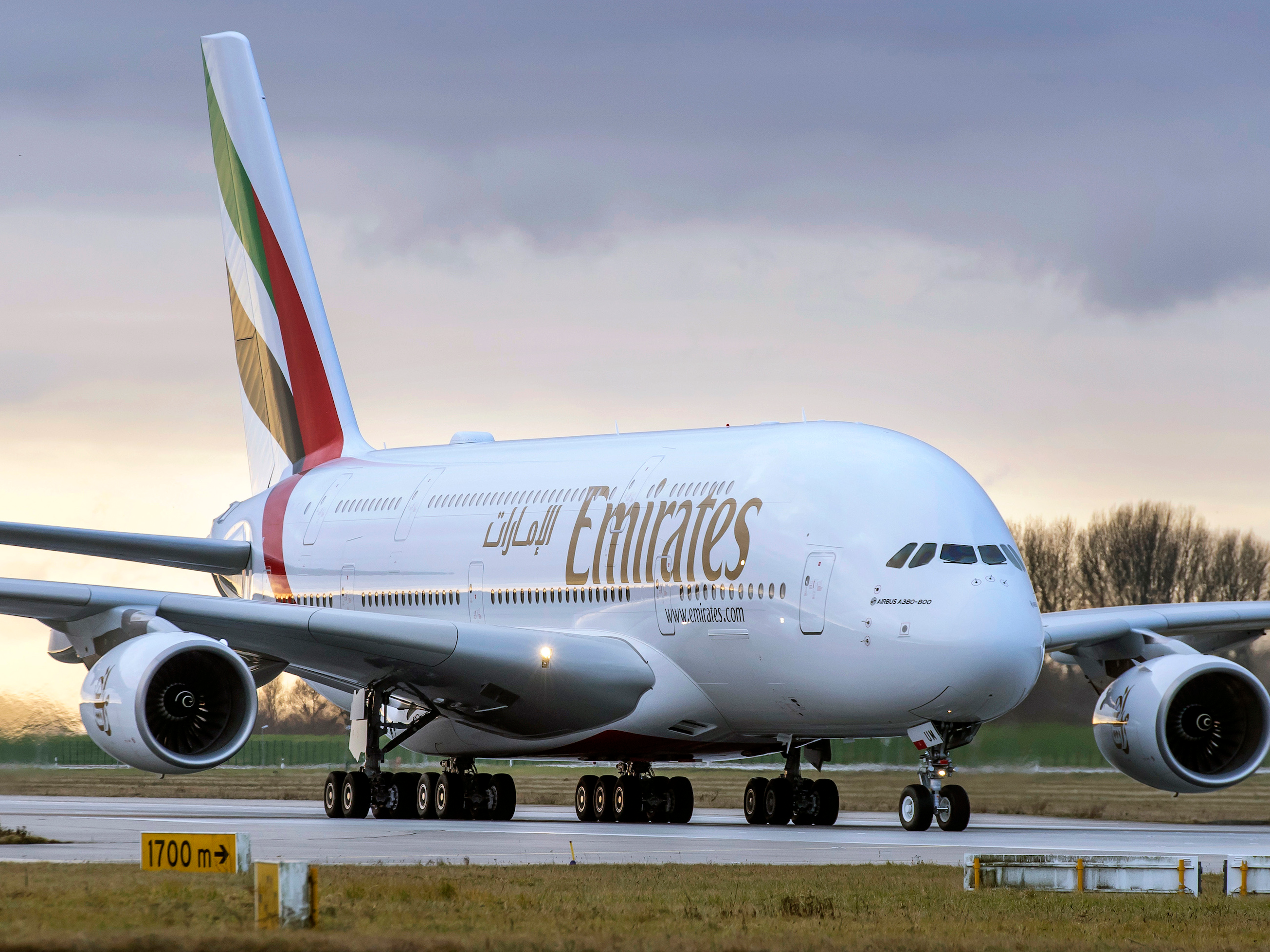- Emirates, the glitzy Persian Gulf airline, plans to operate passenger flights using Airbus A380s for the first time since the pandemic led the airline to ground the fleet.
- The airline expects to replace the aging A380 fleet with Boeing 777X aircraft, the first of which is due to be delivered in 2022.
- However, Tim Clark, the airline’s president, told Business Insider that nothing would measure up to the passenger experience on board the A380.
- Visit Business Insider’s homepage for more stories.
As airlines around the world ground their Airbus A380 fleets during the coronavirus pandemic – some permanently – one airline stands in stark contrast: Emirates.
With a price tag of $445.6 million and room for up to 800 passengers, the four-engine two-deck behemoth is the largest passenger plane ever built. The first unit entered service in 2007, which some observers have said was decades too late.
Airbus has said it will halt production of the A380 in 2021, with just 251 delivered.
For Emirates, however, the A380 has been the perfect aircraft. As other carriers move to a smaller, nimbler point-to-point system, Emirates has made the “superjumbo” jet a staple of its global long-haul hub-and-spoke system, carrying up to about 600 passengers at a time split between three cabins.
Emirates has also taken advantage of the plane's enormous size to build its brand as an ultraglamourous luxury airline.
"It defined us, in many respects," Tim Clark, the president of Emirates, said in an interview with Business Insider. "We've spent an inordinate amount on product, both in flight and on the ground, and that's really paid off."

Clark, who has worked in the airline business since the early 1970s, helped found Emirates in 1985 as its head of planning.
In addition to its 115 A380s, the airline has more than 130 Boeing 777s in its fleet.
However, the A380 is a major part of what helped Emirates earn its market share and reputation.
Among other features, Emirates introduced walk-up bars for first- and business-class passengers, enclosed first-class suites, and even a shower that first-class passengers could use during the flight.
Though the A380 is grounded because of the pandemic, Clark said the airline planned to bring the aircraft back into service - the first A380s will begin flying this week - and keep them in use as long as possible.
"Hopefully, we'll see them flying for at least another 10 years," he said. "Unfortunately, it's not being produced. So there's nothing we can do about it. We'll keep it going as long as we can."
For after that, Emirates has orders for about 115 of Boeing's next-generation wide-body jet, the 777X, primarily the larger 777-9X. as well as smaller 787 Dreamliners.

Despite the new plane's technology and efficiency advancements, Clark says it simply won't measure up to the A380 from the passenger's perspective.
"We will have some very good products on the -9X," Clark said. "But to be quite honest, nothing is going to be as good."
"How could it be as good as the A380 on the upper deck, or as good as it is in economy with 10-abreast seating on the main deck," he added. "It's palatial. And people absolutely love it. They still go out of their way to get on the 380."
Clark said that the 777X will feature updated first class suites - the airline unveiled the new suites in 2019 - as well as a new business class product, and some kind of walk-up bar.
"Don't get me wrong, it's not to say the other aircraft will not be good, but I don't think they'll be as good as the A380."

Development of the 777X has faced multiple delays. Although Emirates was originally scheduled to receive its first deliveries this year, Boeing deferred to 2021 due to issues with the engines and a failed pressure test in 2019. Emirates chief operating officer Adel Al Redha told Bloomberg last week that the airline now expects that to slide to 2022.
"In some respects, that is okay with us," Clark said. "If next year is a difficult year, we'll have to make adjustments to our program of aircraft deliveries.

